Mr. Thaksin postpones his return home, Pakistan will dissolve Parliament , Niger President warns of consequences from the coup... are some notable international news in the past 24 hours.
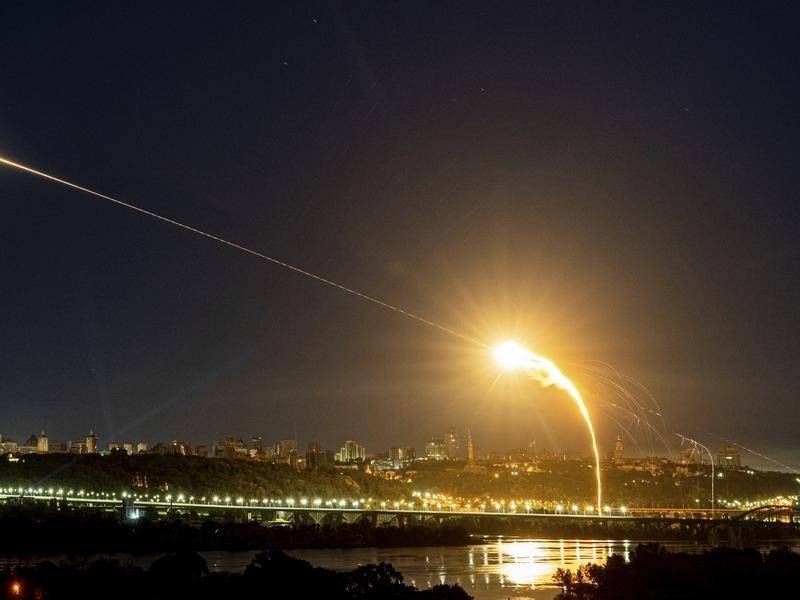 |
| Russia's Novorossiysk port and the Crimean peninsula have become Ukraine's latest targets. (Source: AP) |
The World & Vietnam Newspaper highlights some of the day's international news highlights.
Russia-Ukraine
* Novorossiysk port , Crimea simultaneously attacked: On August 4, writing on Telegram , the Russian Ministry of Defense said: "Overnight (early morning of August 4), the Armed Forces of Ukraine (VSU) attacked the Novorossiysk naval base with two unmanned boats. During the attack, these boats were detected and destroyed by fire from standard weapons on Russian ships, providing protection outside the naval base."
However, according to Ukrainian intelligence, the Russian Navy ship Olenegorsky Gornyak was seriously damaged by the attack and cannot carry out combat missions. Moscow has not yet commented on the above information.
Also on August 4, Russia announced that it had prevented a new attempt by Ukraine to attack the Crimean peninsula with UAVs. The Russian Defense Ministry confirmed: "Overnight (early morning of August 4), Kiev's attempt to carry out a drone attack on targets on the Crimean peninsula was prevented." Moscow confirmed that it destroyed and neutralized 13 UAVs and said the attack did not cause casualties or damage. (TASS/Sputnik)
* Ukrainian President admits “difficult situation” in the South: On August 3, speaking in his nightly video, Mr. Volodymyr Zelensky stated: “Fierce clashes are taking place. They are trying to stop us with all their might, with fierce attacks (in Bakhmut and the East). In the South, everything is difficult. But whatever they do, the power of Ukraine will prevail.”
The leader said that the Russian drone strikes this week, including the attack on the Danube port of Izmail, showed the need to strengthen air defenses. “The enemy deployed at least 1,961 Shahed UAVs. We shot down a large number, but not all of them. We are working to increase this ratio to the maximum by having additional air defense systems,” he said.
For his part, writing on Telegram after a meeting with officers in eastern Ukraine, Ukrainian Ground Forces Commander General Oleksandr Syrskyi said he was trying to speed up the counteroffensive: “In Bakhmut, I focused on current issues such as speeding up the counteroffensive, stepping up operations and resolving existing problems in implementing current tasks.” (Reuters)
* Czech engine appears in Russian UAV in Ukraine? On August 3, The Kiev Independent (Ukraine) newspaper published a photo of a Russian UAV with an engine bearing the inscription “Made in Czech Republic”. The photo was taken by a Ukrainian soldier when he discovered this UAV near Bakhmut.
Shortly thereafter, the manufacturer of the above engine, AXI Model Motors, headquartered in Hradec Kralove (Czech), confirmed that it had never supplied engines to Russia and had not produced these engines for over a year. Accordingly, the above engine was among the items the company had sold to Kyrgyzstan with the government's permission. However, these engines may have been resold to Russia later. (TTXVN)
* US, Ukraine launch negotiations on long-term security commitment : On August 3, representatives of the US State Department, Department of Defense and National Security Council met with their Ukrainian counterparts to begin the negotiation process.
The US State Department statement said bilateral security commitments will focus on ensuring Ukraine has a sustainable force capable of defending the country now and deterring Russian military activity in the future. At the same time, it pledged to support and improve the effectiveness and transparency of Ukraine’s defense organizations and industry, and to promote reforms that support good governance, which are necessary to achieve Euro-Atlantic aspirations.
These discussions between officials of the two countries are within the framework of the Joint Statement of the Group of Seven (G7) industrialized countries on support for Ukraine, thereby contributing to formalizing the long-term support of the United States for Ukraine. (Reuters)
| RELATED NEWS | |
| Russia-Ukraine conflict: Ammunition depot in Crimea attacked; Grain warehouse in Odessa hit by airstrike; What does the US newspaper say about the problem of Kiev soldiers? | |
* Russia does not believe in US grain deal promises : On August 4, RIA (Russia) quoted the Kremlin as saying that the country does not believe Washington will help Moscow to freely export food if Russia returns to the grain deal. Earlier, speaking on August 3, US Secretary of State Antony Blinken said: "In case (Russia) returns to the (Black Sea grain) agreement, we will continue to do whatever is necessary to ensure that all parties can freely and safely export their food and products, including Russia." (Reuters)
| RELATED NEWS | |
| US informed Russia is ready to negotiate grain deal; Italy concerned about Africa issues | |
Southeast Asia
* Mr. Thaksin postpones his plan to return to Thailand: On August 4, Bangkok Post (Thailand) quoted a source from the Pheu Thai party as saying that Mr. Thaksin has decided to postpone his return.
The move was made shortly after the election for prime minister scheduled for August 4 was postponed, pending the Constitutional Court's ruling on whether the National Assembly's decision to reject the re-nomination of Pita Limjaroenrat for prime minister on July 19 was constitutional.
The source added that Mr Thaksin also believed it was better to wait because the Pheu Thai Party was still in discussions with other parties to join its new coalition. Previously, Mr Thaksin had originally planned to return on August 10, according to an announcement on Instagram by his daughter, Ms Paetongtarn Shinawatra, last week.
Currently, three parties are likely to join the Pheu Thai-led bloc: the Bhumjaithai, Chartthaipattana and Democrat parties. Negotiations are still underway with the United Thai Nation (UTN) and the People’s State Power Party (PPRP). However, for now, the participation of some small parties may help boost the bloc. (Bangkok Post)
| RELATED NEWS | |
| Fireworks explosion in Thailand, at least 130 casualties | |
South Asia
* Congress leader allowed to return to Indian Parliament : On August 4, the Supreme Court of India suspended the sentence of opposition Congress leader Rahul Gandhi. Previously, in March, this 53-year-old politician was convicted in a case filed by a lawmaker from the western state of Gujarat of the ruling Bharatiya Janata Party (BJP), related to comments he made in 2019 that were considered offensive to Prime Minister Narendra Modi and people with the surname Modi.
In the case, Rahul Gandhi was sentenced to two years in prison, but the sentence was suspended and he was released on bail. However, he still lost his parliamentary seat because lawmakers sentenced to two years or more in prison are automatically disqualified. Lower courts and the Gujarat high court rejected Rahul Gandhi's appeal to suspend the sentence, prompting him to appeal to the Supreme Court.
With the Supreme Court's decision, the politician will be able to return to parliament and participate in the national election scheduled to take place in 2024. (CNN)
* Pakistan Prime Minister proposes time to dissolve parliament : On August 4, two members of parliament who attended a dinner hosted by Mr. Sharif Shehbaz on August 3 said he would dissolve parliament on August 9 and hand over to a caretaker government for elections next November. The five-year term of the Pakistani parliament will expire on August 12.
The country's Information Ministry has yet to respond to a request for comment on the report. There have been some speculations that the election may have to be postponed due to political and economic instability. (Reuters)
| RELATED NEWS | |
| Foxconn invests $600 million in chip and phone production in India | |
South Pacific
* US nuclear submarine arrives in Australia : Australian officials announced on August 4 that the US Navy's Virginia-class nuclear submarine arrived at the HMAS Stirling Naval Base on a scheduled port visit as part of its Indo-Pacific patrol. The port will be expanded in an 8 billion AUD ($4 billion) project to serve as a base for US and British nuclear submarines from 2027, under the AUKUS Treaty cooperation framework.
Australia plans to buy three conventionally armed US nuclear submarines over the next decade, before building its own new class of nuclear submarines in the 2040s. The US has no bases in Australia, but the Pentagon is increasing the type and number of forces it rotates in the country. (Reuters)
* New Zealand pushes for military reform : On August 4, Prime Minister Chris Hipkins and Defense Minister Andrew Little presented a review of New Zealand's defense policy.
New Zealand’s 15,000-strong defence force is “not in a position to meet future challenges”, the report said, adding that the New Zealand military was built for a “relatively benign strategic environment” rather than the region’s current challenges, including climate challenges and intensifying strategic competition between China and the West.
In that context, Defence Minister Little said New Zealand needed to invest in a “combat-capable” force and could not rely on protection. “Changes in the domestic and international security environment mean our response and preparedness must also change,” he stressed.
He said New Zealand needs to prepare personnel, assets, materials, and appropriate international relations to ensure national defense and security. (Vietnam News Agency)
| RELATED NEWS | |
| New Zealand set to unveil first National Security Strategy, expected to increase defense budget | |
Northeast Asia
* China reduces tariffs on barley imported from Australia : On August 4, the Chinese Ministry of Commerce announced that the country will lift anti-dumping and anti-subsidy tariffs on barley imported from Australia from August 5.
Beijing has previously accused Canberra of dumping barley below production costs, despite the kangaroo country's efforts to deny the accusation. In May 2020, the Chinese government imposed an 80% tariff on Australian barley for five years, crippling a trade worth 1.5 billion AUD ($750 million) a year. (Reuters)
* Former Japanese Prime Minister to visit Taiwan : On August 4, Mainichi (Japan) reported that former Japanese Prime Minister Aso Taro, currently Vice President of the ruling Liberal Democratic Party (LDP), will visit Taiwan (China) from August 7-9. This will be the highest-level visit by a Japanese ruling party official since Tokyo severed diplomatic relations with the Taipei government in 1972. (Reuters)
* South Korea ready to take "strong action" against knife attacks: On August 4, the Office of South Korean President Yoon Suk Yeol stated: "The knife attack at Seohyeon Station is an act of terrorism targeting innocent citizens. The government must mobilize all police forces to ensure that the people do not worry." The statement also warned about related threatening messages on social media.
Earlier, on August 3, the second stabbing incident in two weeks occurred in Bundang, about 20 kilometers southeast of Seoul. The perpetrator drove a car into a pedestrian walkway before attacking several people at a department store. Authorities confirmed that at least two people were still in critical condition. More worryingly, several copycat threats were posted on social media hours after the attack. On July 21, another stabbing incident in the capital Seoul left one person dead and three others injured.
In response to the “emergency”, South Korean police said they would “not hesitate” to use guns and launched a “special security initiative” to combat knife-related violence and prevent copycat behavior. (AFP)
| RELATED NEWS | |
| Having just reached a consensus on barley, Australia wants to 'be less dependent on China' | |
Europe
* Denmark tightens border controls : On the evening of August 3, the Danish Ministry of Justice said that the country's police will tighten border controls after the recent Quran burnings affected the security situation. In a statement, Danish Justice Minister Peter Hummelgaard said: "As the security police said, the recent Quran burnings have affected the current security situation."
Initially, tighter border controls will be in place until August 10.
In recent weeks, anti-Islam activists have vandalized copies of the Quran in Denmark and Sweden, with the Muslim community expressing outrage and calling on the Nordic countries to ban such acts. (Reuters)
| RELATED NEWS | |
| Quran Burnings: A Dangerous Wave | |
Middle East-Africa
* Situation in Niger: Germany worries about propaganda wave, what does Russia say? On August 3, in a post on The Washington Post (USA), President of Niger Mohamed Bazoum, who is being detained, warned that if coup attempts "will have devastating consequences for our country, our region and the whole world". At the same time, this politician also called on "the US government and the entire international community to help us restore our constitutional order".
For its part, facing the possibility of foreign military intervention, the coup forces affirmed: “Any attack or attempted attack against the state of Niger will see an immediate and unexpected response from the Defense and Security Forces of Niger against one of the members of the Economic Community of West African States (ECOWAS), except for friendly countries whose membership in the bloc is suspended,” referring to the two neighboring countries Burkina Faso and Mali.
ECOWAS had previously asked the coup forces to restore Mr Bazoum's civilian government by August 6, or it could consider tougher measures, including military intervention.
Also on August 4, the European Union (EU) issued a statement "strongly" condemning the move to block French media from broadcasting in Niger. On the social networking site X (formerly Twitter ), EU spokesperson Nabila Massrali emphasized: "This step has seriously violated the right to information and freedom of expression. The EU strongly condemns this violation of fundamental freedoms." Previously, France 24 and RFI , two major French media outlets, said their broadcasts had been blocked in Niger since the afternoon of August 3.
For his part, commenting on the possibility of foreign military intervention in Niger, Russian President Dmitry Peskov's spokesman said: "The intervention of forces outside the region does not help change the situation in a more positive direction... We are concerned about the tension and are closely monitoring the situation in Niger. We continue to support a quick return to normality according to the constitution without endangering human life."
Meanwhile, speaking at a regular press conference, a spokesman for the German Foreign Ministry said the country had noticed a campaign of disinformation in Niger, with Russian flags being distributed in the West African country in recent days.
Commenting on the situation in Niger, US National Security Council Strategic Coordinator John Kirby said: "Right now we are focusing on diplomacy. We think there is still time, there is still an opportunity for that." According to him, Washington believes that "the window of opportunity is still open and diplomacy should still be the first tool", but the diplomatic window will not "be open forever." (AFP/Reuters/Xinhua/VNA)
Source


![[Photo] Unique Phu Gia horse hat weaving craft](https://vphoto.vietnam.vn/thumb/1200x675/vietnam/resource/IMAGE/2025/10/10/1760084018320_ndo_br_01-jpg.webp)
![[Photo] "Exposing letters" in the flood center of Lang Son](https://vphoto.vietnam.vn/thumb/1200x675/vietnam/resource/IMAGE/2025/10/10/1760080117518_ndo_br_z7101324112737-07cd4d1c01801a8ccf4ae0cbaf31c4a3-507-jpg.webp)


![[Photo] Ho Chi Minh City is brilliant with flags and flowers on the eve of the 1st Party Congress, term 2025-2030](https://vphoto.vietnam.vn/thumb/1200x675/vietnam/resource/IMAGE/2025/10/10/1760102923219_ndo_br_thiet-ke-chua-co-ten-43-png.webp)

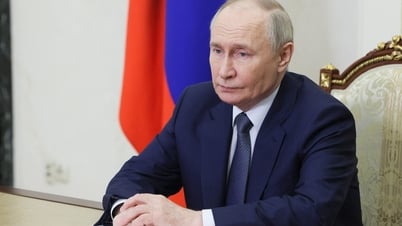



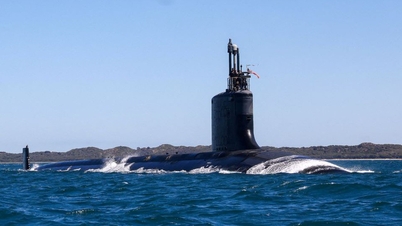

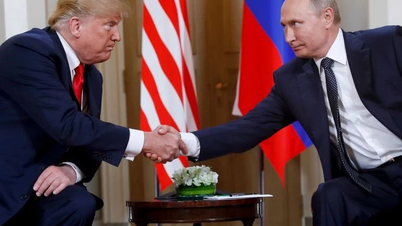

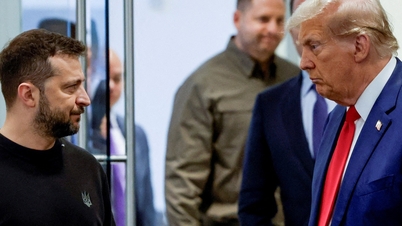
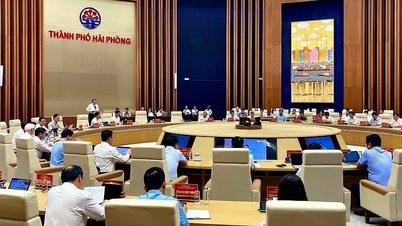












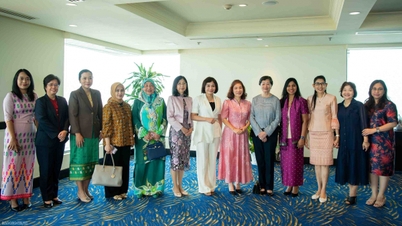
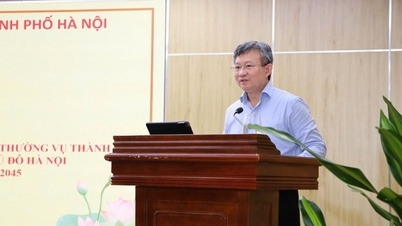

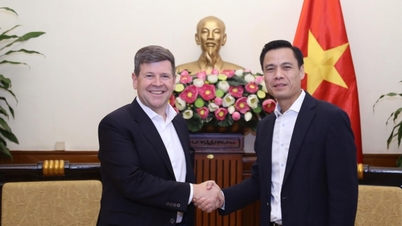
















































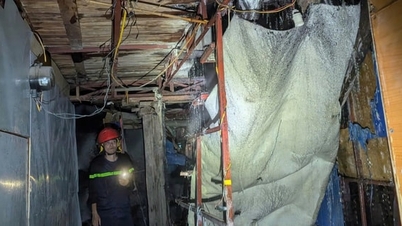





















Comment (0)